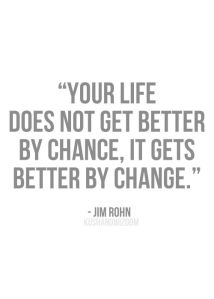In the 80’s (I remember them and it wasn’t pretty), stress got a bad rep. It was blamed for all sorts. Type A behaviour was pretty big news and crossed the line between psychology theory and mainstream media. Since then it’s been pretty widely accepted that stress is bad for us. Stress in a constant and unrelenting way that is. So there is evidence that a bit of stress is pretty good for helping us perform well. So, students who are little bit stressed about exams tend to perform better than students who aren’t stressed at all for example. That’s because our autonomic response – our physical response to stress, focusses us mentally and can help improve our performance, at least in the short term.
Like many people diagnosed with MS, and similarly for other illnesses, but particular inflammatory or autoimmune disorders, stress is often a precipitator to illness. It’s established in mainstream MS literature that stress can contribute to relapse and you often read it in the patient info, though not much of that literature takes the time to explain why, assuming that the explanation that ‘stress is bad’ is perhaps enough to help us poor ‘patients’ understand. Put simply it’s because stress is inflammatory. MS is an inflammatory disease. It’s caused by inflammation that leaves lesions. Stress tips our body into that inflammatory response and this seems to be why we experience relapses and illness progression. In part. Ok so that’s a very simplified version of events…
I was classic. Stressed. Tired (2 kids under 5). Coping (just) and with a genetic predisposition. Throw in some coffee, red wine coca cola and Boom! Years of low level MS symptoms that never evolved into a full relapse became a full relapse. In the overhaul of my life in response to MS (anyone following my journey will know there have been many changes) Stress was a tricky one. I was the type of person who thrived on challenge. Who pushed herself. Aimed high. The result of this is managing stress, right? How do you go about changing a major aspects of your personality? Of who you are?
Making change to your life is hard. Making changes to how you live is where you start. As someone experienced in using cognitive-behavioural therapy in my day job I knew that easiest way to affect change in the whole self, was simply to do. Fake it til you feel it, right?). That if we make the change in what we do for long enough and it will become who we are. Takes 21 days to change a habit, apparently. Sounds pretty obvious really doesn’t it? But anyone who’s tried to give up smoking, or get fit, or quit alcohol or forget a broken heart knows it’s not always as easy as it sounds. Perhaps we are divided into people who can, and people who can’t? As a psychologist I believe that we are all capable of change. Perhaps some of us need more support than others, sure, but we can all make changes. It’s not rocket science. You start small and you build. Your strength will grow in line with the courage you show in taking that chance. In trying to make changes. We can also challenge the way we think. The way we respond. Gather our support team and cheerleaders to help us.
Over time I have come to accept (and dare I say it, even like!) the part of me that is driven. That aims high. That gives a shit. That wants to make a difference to others and do the best I can for my family, for my community. Walking away from that meant walking away from huge aspects of who I am. It felt too weird. Wasteful. Unauthentic. It left me feeling like I didn’t know who I was and when your sense of self is as rocked as it is after being diagnosed with a major disease, that was NOT what I needed. I needed to find a way of accepting who I was, and being that person without it damaging my health. My future. I knew that meant I needed to develop a new relationship with stress.
In my ponderings I came across the TEDX talk by Kelly McGonigal. Kelly is a Stanford Health Psychologist who has talked most recently about shaping our response to stress in a different way. She shares the research that it was not simply the amount and extent of stress that affected people, but that when they looked closer at it, it was the people’s response to it that made the difference in how it affected them and their health. Put simply, if we regard stress as being damaging and respond to it according to those beliefs, then it will affect us in a more damaging way. Sounds simple? I’m sure it’s not quite that simple, but it gave me food for thought and has helped me begin to re-evaluate the choices I make. The thoughts I allow myself to have when I’m faced with making a choice. F. Take a look for yourself here and see what you think:
http://www.ted.com/talks/kelly_mcgonigal_how_to_make_stress_your_friend?language=en
I’ll let you know how I get on. But right now, I have to dash. I have a million things to do…


Pingback: “Stress. we need to talk about us. It’s not you, it’s me”. | my oms life – memsandbeingmum
Thanks so much! And yes, there are so many great resources to be found out there. Best wishes
Hi! I just wanted to let you know that I have added your blog to my SUPER long MS Resource list. Every time I think that I have found most of the blogs/sites/books/videos/audio & apps I come across a whole new slew of them. I look forward to spending some time reading and learning about you life with MS.
Cheers!
Meg (aka BBH)
http://www.bbhwithms.com/resources-all-things-ms/